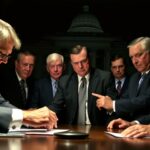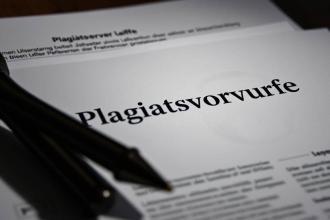In a recent appearance on the Maischberger show, Germany’s Kulturstaatsminister Markus Weimer sparked controversy by criticizing the Green Party’s stringent environmental policies. Weimer’s comments have ignited a heated debate about the balance between environmental regulation and cultural expression in German politics.
The discussion surrounding Weimer’s statements highlights a broader concern about the impact of environmental regulations on society. As reported by sources such as Bild.de, Weimer’s critique touched on the delicate balance between preserving cultural heritage and adhering to environmental policies.
Key Takeaways
- Kulturstaatsminister Markus Weimer criticized the Green Party’s environmental policies on the Maischberger show.
- Weimer’s comments sparked a debate about the impact of environmental regulations on German society.
- The discussion highlights the tension between cultural expression and environmental protection.
- Weimer’s statements reflect a broader concern about the role of politics in shaping cultural and environmental policies.
- The controversy underscores the need for a balanced approach to environmental regulation and cultural preservation.
The Maischberger Show: Germany’s Premier Political Talk Forum
Sandra Maischberger’s talk show has become a cornerstone of German political discourse. As a prominent figure in German journalism, Maischberger hosts a show that delves into the country’s most pressing political issues, making it a must-watch for those interested in understanding Germany’s political landscape.
Who is Sandra Maischberger and Why Her Show Matters
Sandra Maischberger is a well-known German journalist and TV presenter with a reputation for asking tough questions. Her show matters because it provides a platform for in-depth discussions on current political topics, featuring a diverse range of guests from across the political spectrum.
The Show’s Format and Viewership
The Maischberger show follows a straightforward yet engaging format: in-depth interviews and discussions with political figures, experts, and influencers. Some key aspects of the show include:
- In-depth analysis: The show is known for its detailed examination of political issues.
- Diverse guest list: Featuring a wide range of political perspectives.
- High viewership: It enjoys a significant following among those interested in German politics.
The show’s popularity can be attributed to Maischberger’s ability to facilitate nuanced discussions, making complex political issues more accessible to a broad audience. As a result, the Maischberger show has become a significant contributor to Germany’s political discourse.
Meet Kulturstaatsminister Markus Weimer: A Political Profile
Kulturstaatsminister Markus Weimer is a significant player in Germany’s CDU party, bringing a unique perspective to cultural policy-making. As a key figure in shaping the country’s cultural policies, Weimer’s political background and ideology are worth examining.
Weimer’s Political Background and Ideology
Markus Weimer’s political career is rooted in the CDU party, where he has held various positions that have shaped his political ideology. His commitment to cultural preservation and promotion is evident in his policies as Kulturstaatsminister.
Key Career Milestones
- Early Political Career: Weimer started his political journey within the CDU’s youth organization, gradually rising through the ranks.
- Appointment as Kulturstaatsminister: His appointment marked a significant milestone, bringing his political ideology to the forefront of cultural policy-making.
- Influential Policies: Weimer has been instrumental in implementing policies that balance cultural freedom with environmental regulations.
Weimer’s approach to cultural policy is characterized by his CDU ideology, focusing on promoting cultural diversity while ensuring environmental sustainability. His role as Kulturstaatsminister is pivotal in navigating the complexities of German politics, particularly in relation to the Green Party’s environmental agenda.
Understanding Germany’s Green Party and Their «Verbotspolitik»
At the heart of Germany’s political landscape, the Green Party’s environmental policies have been both praised and criticized for their strictness. The Green Party, known for its strong stance on environmental issues, has been a pivotal force in shaping Germany’s ecological agenda.
Core Principles of the Green Party’s Environmental Agenda
The Green Party’s environmental agenda is rooted in the principles of sustainability, conservation, and reduction of carbon emissions. Their policies aim to protect natural resources and promote eco-friendly practices across various sectors.
Key Policy Initiatives and Regulations
The Green Party has introduced several key policy initiatives, including stricter regulations on industrial emissions and the promotion of renewable energy sources. Some of their notable policies include:
- Implementing stricter emission controls for industries
- Promoting renewable energy through subsidies and tax incentives
- Encouraging sustainable transportation through infrastructure development
| Policy Initiative | Description | Impact |
|---|---|---|
| Stricter Emission Controls | Regulations to limit industrial emissions | Reduction in air pollution |
| Renewable Energy Promotion | Subsidies and incentives for renewable energy | Increase in renewable energy usage |
| Sustainable Transportation | Infrastructure development for eco-friendly transport | Decrease in carbon footprint from transportation |
The Green Party’s «Verbotspolitik» or «prohibition policy» has been a subject of controversy, with critics arguing it hampers economic growth. However, proponents see it as a necessary step towards environmental protection.
Setting the Stage: The Controversial Episode Context
As the Green Party’s influence grew, so did the tension surrounding their environmental agenda. Germany’s political climate was becoming increasingly polarized, with debates surrounding the Green Party’s policies reaching a boiling point.
Political Climate in Germany Before the Show
The months leading up to the Maischberger show saw a significant surge in discussions around the Green Party’s environmental policies. Critics argued that these policies were too restrictive, while supporters saw them as necessary steps towards a more sustainable future.
Recent Green Party Policy Implementations
Some of the recent implementations included stricter regulations on industrial emissions and a push for renewable energy sources. These moves were met with both applause and criticism, contributing to the controversy that surrounded the Green Party.
The debate was further complicated by the cultural implications of these policies, with some arguing that they would stifle artistic expression and others seeing them as a necessary evil in the fight against climate change.
The stage was thus set for a heated discussion on the Maischberger show, with Kulturstaatsminister Markus Weimer poised to challenge the Green Party’s stance on environmental policies.
The Paukenschlag bei Maischberger: Moment by Moment
The Maischberger show witnessed a dramatic turn of events when Kulturstaatsminister Markus Weimer launched a scathing critique of the Green Party’s environmental policies. This unexpected confrontation captivated the audience and set the tone for a heated discussion.
The Initial Discussion Topic
The episode began with a seemingly routine discussion on environmental policies in Germany. However, the tone quickly shifted as Markus Weimer began to express his reservations about the Green Party’s approach to environmental regulation. Weimer’s comments were met with resistance from the Green Party representatives, leading to a tense exchange.
How the Conversation Shifted
As the conversation progressed, Weimer’s criticism became more pointed, focusing on the potential economic impacts of the Green Party’s policies. The Green Party representatives defended their stance, arguing that environmental protection was paramount. The debate intensified, with both sides presenting compelling arguments.
The Paukenschlag bei Maischberger moment arrived when Weimer uttered a particularly strong statement, criticizing the Green Party’s «Verbotspolitik» or prohibition policy. This sparked a robust response from the Green Party representatives, who felt their policies were being misrepresented.
The controversy surrounding this episode of the Maischberger show highlights the deep-seated tensions within Germany’s political landscape. The debate over environmental policy is complex, with valid concerns on both sides. As the discussion on the Maischberger show demonstrated, finding a balance between economic and environmental interests is a challenging task.
The outcome of this confrontation remains to be seen, but it has already sparked a national conversation about the future of environmental policy in Germany. As Markus Weimer and the Green Party continue to debate, the public watches with interest, aware that the decisions made today will have lasting impacts.
Weimer’s Specific Criticisms Dissected
On Sandra Maischberger’s talk show, Markus Weimer dissected the Green Party’s environmental policies, citing examples of overreach. This critique was not merely a passing comment but a detailed analysis of the Green Party’s environmental regulation approaches.
Criticism of Regulatory Approaches
Weimer’s criticism centered on the Green Party’s methods of implementing environmental regulations. He argued that their approaches often crossed the line from necessary regulation to excessive control.
«The Green Party’s zeal for environmental protection sometimes blinds them to the economic realities faced by many Germans,» Weimer stated, highlighting the need for a balanced approach.
Examples of «Overreach» Cited
Weimer provided several examples to illustrate his point, including stringent regulations on industrial emissions and restrictions on vehicle usage in urban areas.
| Policy Area | Green Party Proposal | Weimer’s Criticism |
|---|---|---|
| Industrial Emissions | Strict limits on CO2 emissions | Potential for job losses in manufacturing sector |
| Vehicle Usage | Low Emission Zones in cities | Restrictive measures harming local businesses |
Weimer’s critique was not just about the policies themselves but also about the broader implications for the economy and society. He emphasized the need for a more nuanced discussion that considers multiple facets of environmental regulation.
The debate sparked by Weimer’s comments on Maischberger underscores the complexity of environmental policy-making. It highlights the challenges of balancing environmental protection with economic and social considerations.
Green Party Representatives‘ Responses and Defenses
Green Party representatives were not passive during the Maischberger broadcast, actively defending their stance on environmental regulation. Their responses were multifaceted, involving both verbal counters and strategic body language.
Immediate Reactions During the Broadcast
The Green Party representatives on the show reacted swiftly to Weimer’s criticisms, employing a combination of logical arguments and emotional appeals to counter his claims. For instance, when Weimer attacked the Green Party’s environmental policies as overly restrictive, the representatives countered with examples of successful environmental initiatives.
Body Language and Verbal Counters
The representatives‘ body language played a crucial role in their defense. They maintained confident postures and made direct eye contact, signaling strength and conviction. Verbally, they presented data-driven arguments to refute Weimer’s claims, often using emotive language to highlight the urgency of environmental issues.
Some key points raised by the Green Party representatives included:
- Citing international examples where strict environmental regulations have led to economic benefits.
- Highlighting the long-term costs of inaction on environmental issues.
- Emphasizing the need for a balanced approach that considers both economic and environmental factors.
As one representative noted,
«We are not advocating for blind regulation; we are pushing for smart, effective policies that benefit both our economy and our environment.»
Their defenses were not merely reactive; they also proactively presented their vision for a sustainable future, garnering support from the audience.
Public and Media Reaction to the Confrontation
The Maischberger show’s confrontation triggered a significant reaction from both the public and the media. As the debate unfolded, it became clear that the discussion was not just about the Green Party’s «Verbotspolitik» but also about the broader implications of such policies on German society.
Social Media Response Analysis
Social media platforms were abuzz with reactions to the confrontation. Twitter, in particular, saw a surge in tweets related to the show, with many users expressing their opinions on Kulturstaatsminister Weimer’s criticisms of the Green Party.
«The intensity of the debate was palpable even through the screens,» noted one Twitter user. The use of hashtags like #Maischberger and #Verbotspolitik allowed users to follow the conversation and engage with others.
Trending Hashtags and Public Opinion
Hashtags related to the show trended on Twitter, reflecting the public’s divided opinion on the matter. While some praised Weimer’s bold stance against what he termed «restrictive environmental policies,» others criticized him for being overly harsh on the Green Party.
«The debate highlighted the deep-seated tensions within Germany’s political landscape, particularly between environmental advocates and those pushing for cultural freedom.» –
A closer look at the trending hashtags reveals a complex public opinion landscape. The controversy sparked by the Maischberger show episode continues to resonate, with ongoing discussions on social media and in the media.
Political Fallout: Implications for German Coalition Politics
The confrontation on the Maischberger show sent shockwaves through German coalition politics, exposing deep-seated tensions. The episode highlighted the challenges faced by the governing coalition in balancing competing interests and agendas.
Tensions Within the Governing Coalition
The Green Party’s «Verbotspolitik» (policy of prohibition) was a focal point of contention, with Kulturstaatsminister Markus Weimer being a vocal critic. This criticism laid bare the existing tensions within the governing coalition.
Other Ministers‘ Positions
Other ministers within the coalition have taken varied stances on the issue. For instance, the Minister of Environment has been supportive of the Green Party’s environmental regulations, while the Minister of Economy has expressed concerns about the economic impact of such policies.
| Minister | Position on Green Party’s Environmental Regulations |
|---|---|
| Minister of Environment | Supportive |
| Minister of Economy | Critical, citing economic concerns |
| Kulturstaatsminister Markus Weimer | Critical, focusing on cultural impact |
The debate on Maischberger underscored the complex dynamics at play within Germany’s governing coalition. As the government navigates these tensions, the implications for German coalition politics will be significant.
Cultural Policy Battleground: Arts vs. Environment
Markus Weimer’s recent statements on cultural freedom have sparked a heated debate in Germany’s cultural and environmental circles. As Kulturstaatsminister, Weimer’s vision for cultural freedom is centered around the idea that arts and culture should thrive without excessive regulatory constraints.
Weimer’s Vision for Cultural Freedom
Weimer believes that the current environmental policies, championed by the Green Party, are stifling creative expression. He argues that while environmental protection is crucial, it should not come at the expense of cultural development. His stance has garnered support from the arts community, who feel that their work is being unduly restricted by stringent regulations.
Specific Cultural Initiatives at Risk
Several cultural initiatives are potentially at risk due to the Green Party’s environmental policies. These include:
- Large-scale art exhibitions that require significant resources and infrastructure.
- Music festivals that have a substantial environmental footprint.
- Theater productions that involve complex set designs and energy consumption.
| Cultural Initiative | Potential Impact | Weimer’s Stance |
|---|---|---|
| Large-scale Art Exhibitions | Regulatory hurdles may limit the scale and frequency of exhibitions. | Advocating for exemptions to facilitate cultural expression. |
| Music Festivals | Environmental regulations may increase costs and logistical challenges. | Supporting measures to reduce the environmental impact while preserving the festivals. |
| Theater Productions | Energy consumption regulations may affect the complexity of set designs. | Promoting energy-efficient practices without stifling creativity. |
Why This German Debate Matters for Americans
The German debate on environmental policies has significant implications for American politics, highlighting the global nature of environmental issues. As the world grapples with climate change, understanding the parallels between different countries‘ approaches to environmental regulation becomes increasingly important.
Parallels to U.S. Environmental Policy Discussions
Both Germany and the United States face similar environmental challenges, including reducing carbon emissions and transitioning to renewable energy sources. However, the approaches taken by each country differ significantly.
Similar Tensions in American Politics
In the United States, there are similar tensions between environmental protection and economic freedom. For instance, debates over the Green New Deal have highlighted the challenges of balancing environmental goals with economic concerns.
| Issue | Germany’s Approach | U.S. Approach |
|---|---|---|
| Renewable Energy | Aggressive targets for renewable energy adoption | Mixed policies, with some states leading on renewables |
| Carbon Emissions | Strict regulations and carbon pricing | Varied approaches, with some states implementing carbon pricing |
| Economic Impact | Concerns about economic competitiveness | Debates over the economic impact of environmental regulations |
By examining the German debate on environmental policies, Americans can gain a deeper understanding of the complexities involved in addressing climate change and the trade-offs between environmental protection and economic freedom.
Conclusion: The Lasting Impact of Weimer’s Maischberger Moment
The confrontation between Kulturstaatsminister Markus Weimer and the Green Party on the Maischberger show has left a lasting impact on German politics and the debate surrounding environmental policies. Weimer’s criticisms of the Green Party’s «Verbotspolitik» sparked a heated discussion, highlighting the tensions within the governing coalition.
The Maischberger show, known for its in-depth political discussions, provided a platform for Weimer to challenge the Green Party’s environmental agenda. The controversy that ensued has significant implications for German coalition politics, with potential repercussions for the cultural policy battleground.
The debate surrounding Weimer’s appearance on the show has also drawn parallels to U.S. environmental policy discussions, making it a relevant topic for international observers. As the German government navigates these challenges, the lasting impact of Weimer’s Maischberger moment will continue to shape the political landscape.
The controversy has ignited a broader conversation about the balance between environmental regulation and cultural freedom, with Weimer’s vision for cultural policy at the forefront. As the discussion continues to unfold, it remains to be seen how the German government will address these competing interests.









